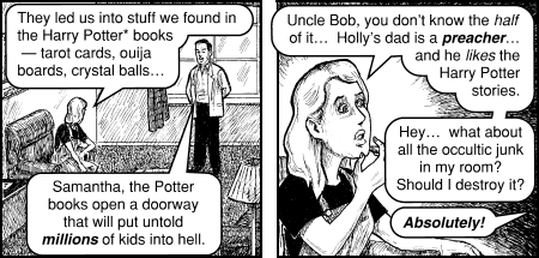 A fissure has formed in the book community as of late, and over a topic we don’t often assign to the average bookworm: censorship. Reviewers have grown more passionate about defending diverse books and criticizing common racial/LGBT pitfalls that less diverse authors fall into. This was a great, purposeful movement,… until it became a weapon. Popular reviewers and bloggers began leading hunts after writers and books they deemed ‘problematic’, full of 1-star reviews and call-out blogs. Readers were told not to buy, or read, or even speak positively of books the community found troubling or questionable. This ‘problematic’ label now ranges from actual poor representation to lead characters who simply don’t align with upstanding morals/beliefs- it’s even been directed at book before they’ve released in ARC. This aslso came a very anti-classic novel movement, aiming to snub the patriarchal roots of fiction found in the likes of Hemingway and Updike. The lines have been drawn, and many people have come out with criticism over the movement. Likewise, there are authors, agents, and reviewers that defend the movement’s core idea is being upheld. The image that comes to mind for community censorship is not usually a group of awkward bookish teens, but the conservative Midwestern housewife, storming into her son’s school after she’s discovered the many uses of N-word in To Kill a Mockingbird, or all the course language and scary content of Bridge to Terabithia. This happens every year, after all. It’s a culture of church pamphlets that scare parents away from Harry Potter and Golden Compass, or whispered fear of why someone won’t read Kurt Vonnegut. Community censorship isn’t new, but do we actually serve progressive writing and diverse works with it? Are works of the past, or difficult topics, now impossible to broach in this ‘more sensitive’ era? Doubtful. If the aforementioned books can survive controversy, then so will many of the recent troublemakers. If a book stirs something in the world, chances are it’s worth reading- if only to see why it stirred up said reaction. If the combatants of problematic books meant to taper down interest, it failed with novels like Carve The Mark, The Black Witch, and All The Crooked Saints, all of which sold brilliantly. And that’s not to say these books are immune to criticism; indeed, we should discuss the ideas behind a bigoted character taking a lead role, or a white author writing outside of their race or culture. We should discuss the pitfalls and merits to these kinds of books, but the key word is “discuss”: not “banish.” If we’re truly being supportive of diversity, we have to learn to critique without bashing. We also have to read older works with an understanding of what is historical, and therefore may not age well by our standards. Most of all, we need to remember that authors are just people (albeit weird people) who do not usually mean to attack in their portrayals or narratives. I suspect internet culture buries this etiquette in the face of personal opinion and virtue signaling, but I still find it exists. Fostering this mindset is so important these days, simply because one of the biggest issues in censorship is that people simply refuse to read widely enough. Like the man who never leaves his small American hometown, limited reading makes a limited reader. Yes, there’s a lack of proper representation in popular fiction, a selection of books that makes up about 0.11111111% of what books you can buy. There are scores of incredible indie and less well promoted books, written by authors from all walks of life, about characters and stories from all over the world. These books not only deserve your reviews, but the market will continue to have a hard time changing untilpeople make an effort to positively support these kinds of books and buy them. Be the change you wish to see realized. The same goes for your experience with classic fiction. You can’t just disregard the eras past fully, where Oscar Wilde and Virginia Woolf, notable LGBT authors, reside. Or how about Jane Austen, Charlotte Perkins Gilman, and Christina Rossetti, incredibly feminist voices of their day? Shakespeare himself explored complex themes with race, homosexuality, and gender roles in an era we often don’t associate with progressive anything. Are these old works flawless in their pursuits? No, and many of them are marked with their era’s views, and the same will happen with the works of the 21st century. In Shakespeare’s time, readers found Chaucer unreadable, troubled, and dated. A hundred years from now, groups of scholars will study our scores of YA books and chat box novels, and students will scoff that these works: “how dated! How problematic! Why would they even think this way?” There are few paths to a perfect, truly “unproblematic” book- and why would we want our characters perfect and unbiased anyway? Humanity is flawed, people are messy and sometimes wrong. When we have characters that are the same way, it allows an audience to reflect on that wrongness through the lens of fiction. Old books also allow us a glimpse a past and an understanding of it, so that we might do better. That should be the purpose of the hard, controversial, and downright upsetting. If we are never challenged, then we never truly reflect. And I suppose that’s a good question to ask one’s self: if a book or character stirs anger in my soul- if I feel the need to hide away from it, what exactly am I hiding from? What truth do we see, looking back at us from those pages?
0 Comments
Leave a Reply. |
About MeCaitlin Jones is an author, film editor, and lover of all things Victorian and fantastic. Please check in for information on her upcoming series. Archives
August 2020
|
 RSS Feed
RSS Feed
